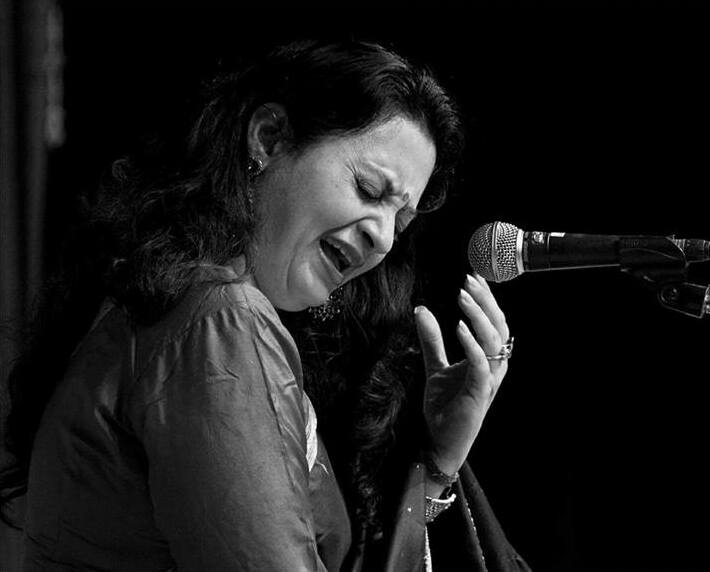|
Tappā
Tappa is a form of Indian semi-classical vocal music. Its specialty is a rolling pace based on fast, subtle and knotty construction. Its tunes are melodious and sweet, and depict the emotional outbursts of a lover. Tappe (plural) were sung mostly by songstresses, known as baigees, in royal courts. History Tappa originated from the folk songs of the camel riders in Punjab. The tappa style of music was refined and introduced to the imperial court of the Mughal Emperor Muhammad Shah, and later by Mian Ghulam Nabi Shori or Shori Mian, a court singer of Asaf-Ud-Dowlah, Nawab of Awadh. In Bengal, Ramnidhi Gupta, Shibangshu De ( known as real powerhouse of "Tappa") & Kalidas Chattopadhyay composed Bengali tappa and they are called Nidhu Babu's Tappa. Tappa ''gayaki'' took new shape and over decades became ''puratani'', a semi-classical form of Bengali songs. Tappa, as a significant genre in Bengali musical styles, reached levels of excellence in lyrics and rendition (gayaki), argua ... [...More Info...] [...Related Items...] OR: [Wikipedia] [Google] [Baidu] |
Nidhu Babu
Ramnidhi Gupta () (1741– 6 April 1839), commonly known as Nidhu Babu, was one of the reformers of Bengali '' tappā'' music. Nidhu Babu was born in Chapta, Hooghly District at his maternal uncle's house.Samsad Bangali Charitabhidhan by Anjali Bose, 1960, p. 259 His ancestral house was at Kumartuli in North Kolkata,Samsad Bangali Charitabhidhan by Anjali Bose, 1960, p. 259 where he grew up learning Persian and some English. Little is known about his upbringing, but by 1776 he had become a clerk in the office of the Chhapra Collectorate.Chakrabarty, Ramakanta. ''Nidhu Babu and his Tappā.'' Published in Banerjee, Jayasri (ed.), ''The Music of Bengal''. Baroda: Indian Musicological Society, 1987. In Chhapra, Nidhu Babu found a Muslim ''ustad'' to train him in the techniques of a formal ''gharana'', or school of musical thought. However, he soon became fed up with his method of teaching, and decided to independently translate Hindi music into Bengali Bengali or Bengalee, or Ben ... [...More Info...] [...Related Items...] OR: [Wikipedia] [Google] [Baidu] |
Kalidas Chattopadhyay
Kalidas Chattopadhyay (), better known as Kali Mirza (), was an 18th-century composer of ''tappā'' music in Bengal. A contemporary of Nidhu Babu, he composed over 400 ''tappā''s. He received his training in the cities of Delhi and Lucknow. He was born at Guptipara, Hooghly District in present-day West Bengal West Bengal (; Bengali language, Bengali: , , abbr. WB) is a States and union territories of India, state in the East India, eastern portion of India. It is situated along the Bay of Bengal, along with a population of over 91 million inhabi .... His name, " mirza", comes from the Muslim clothes he often wore.Chakrabarty, Ramakanta. ''Nidhu Babu and his Tappā.'' Published in Banerjee, Jayasri (ed.), ''The Music of Bengal''. Baroda: Indian Musicological Society, 1987. References Indian male composers 18th-century Indian composers Musicians from West Bengal {{Mirza-stub ... [...More Info...] [...Related Items...] OR: [Wikipedia] [Google] [Baidu] |
Vocal Music
Vocal music is a type of singing performed by one or more singers, either with instrumental accompaniment, or without instrumental accompaniment (a cappella), in which singing provides the main focus of the piece. Music which employs singing but does not feature it prominently is generally considered to be instrumental music (e.g. the wordless women's choir in the final movement of Holst's symphonic work '' The Planets'') as is music without singing. Music without any non-vocal instrumental accompaniment is referred to as ''a cappella''. Vocal music typically features sung words called lyrics, although there are notable examples of vocal music that are performed using non-linguistic syllables, sounds, or noises, sometimes as musical onomatopoeia, such as jazz scat singing. A short piece of vocal music with lyrics is broadly termed a song, although in different styles of music, it may be called an aria or hymn. Vocal music often has a sequence of sustained pitches that rise an ... [...More Info...] [...Related Items...] OR: [Wikipedia] [Google] [Baidu] |
Meeta Pandit
Dr. Meeta Pandit is a Hindustani classical music, Hindustani Classical vocalist and a leading exponent of the Gwalior Gharana. She is the granddaughter and disciple of Krishnarao Shankar Pandit and daughter of Laxman Krishnarao Pandit. She is the sixth in the unbroken lineage and the first woman in the family to have taken up music as a profession. Early life Meeta was born in New Delhi, India. She is the daughter of Abha Pandit, a homemaker and Pt. Laxman Krishnarao Pandit, a veteran singer of the Gwalior gharana and Sangeet Natak Akademi awardee. She spent her childhood in New Delhi, where she attended St. Mary's School until higher secondary, and earned a bachelor's degree in commerce from Lady Sriram, Lady Sri Ram College, Delhi University. Meeta began training with her legendary grandfather, the doyen of the Gwalior gharana, Padma Bhushan Pt. Krishnarao Shankar Pandit and her father Pt. Laxman Krishnarao Pandit, at the age of 3. Growing up in a house where music ustads and he ... [...More Info...] [...Related Items...] OR: [Wikipedia] [Google] [Baidu] |
